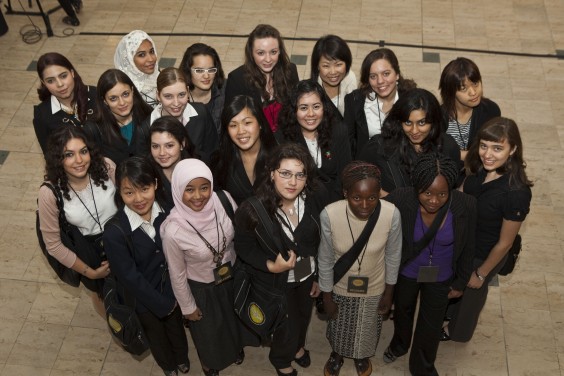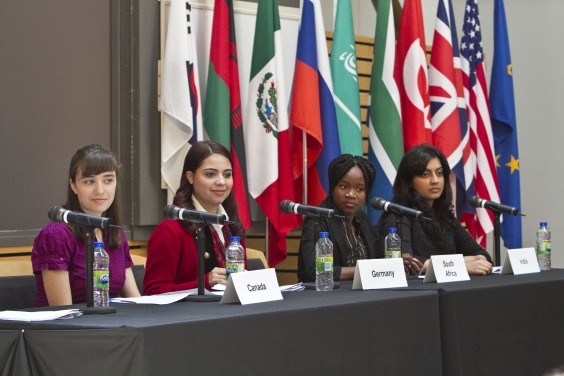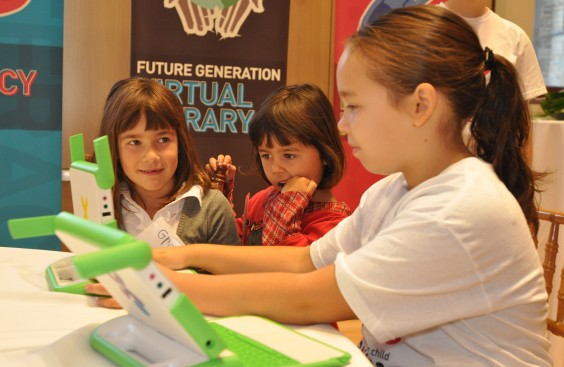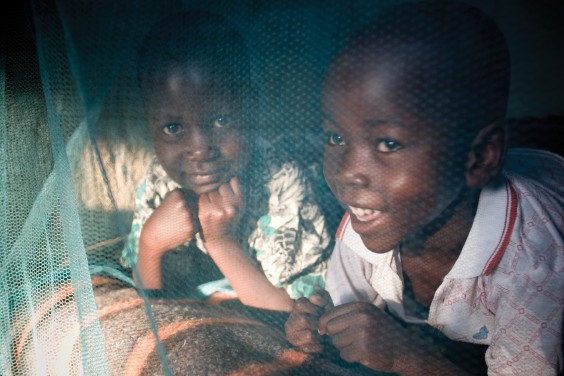Over the last decade, the emergence of partnerships in the philanthropic sector has grown dramatically. The concept of chequebook philanthropy is no longer as popular as it once was; funders want to be more active and organizations are more willing (and if they are not, they should be) to accept the expertise of partners in lieu of cash.
From where I sit, this has resulted in a more holistic approach when tackling some of the greatest challenges of our time, including poverty alleviation, climate change challenges, establishing politically peaceful countries, and what I consider the bedrock of a strong, prosperous and forward-looking country, education. There are many examples where governments, public sector organizations and private corporations come together to achieve a certain goal. Education may not be the most obvious one, but in the world of philanthropy it does seem to be one of the most popular areas of collaboration.
At The Belinda Stronach Foundation (TBSF), partnerships are at the forefront of our organization. We create partnerships with individuals, non-governmental organizations, businesses – small and large – as well as other foundations whose goals are to work in Canada and around the world to confront challenges and create opportunities. Our three major projects are the G(irls)20 Summit, Spread the Net and One Laptop Per Child Canada and each of them has a strong education through empowerment, partnership and action theme.
For example, The G(irls)20 Summit brings together one girl from each G20 country, plus a representative from the African Union. While the agenda is the same as the G20 leaders and focuses on economic innovation, the participants are all girls, aged 18-20. The delegates debate, discuss and design innovative ideas necessary to empower girls and women globally. Last year as well as this year, the girls will look at the role education plays – both formal and informal education.
Bringing these delegates together is the result of a partnership with over 50 players at home and abroad, including private sector contributors Google, Norton Rose, the Mastercard Foundation, Edelman, Deloitte, Standard Chartered Bank, Veritas Communications, Macroblu, The Nike Foundation, Intel and not-for-profit organizations like the Clinton Global Initiative, Girls Guides, Man Up, and Plan. Each of these partners commit to providing some form of support including content development, mentoring, funding or in-kind expertise.
One Laptop Per Child Canada (OLPC) is part of a global network dedicated to creating educational opportunities for children by providing each child with a rugged, low-cost, low-power, connected laptop with content and software designed for collaborative, joyful, self-empowered learning. In Canada, we have launched a pilot program that will provide up to 5,000 laptops to Aboriginal children, ages 6-12, who live in rural, remote and urban communities. The laptop offers more than 40 programs, including eight customized programs that were developed by content experts like CAMH, Participaction, Buffy Saint-Marie and Safe Kids.
To ensure we could invest strategically and meaningfully, TBSF shares funding demands and offsets the costs of the program with support from Vale, BMO, IBM, Air Canada, First Air and the Government of Ontario. The educational impact of this program goes far beyond just providing some programs on a computer; it encourages participating children to work together via a built-in network. It helps them explore different aspects like music, drawing, get comfortable with the Internet and, ultimately, it provides them with a tool that expands their horizons.
My final example of how partnerships can yield tremendous results is our Spread the Net Program, which is housed in Canada but benefits people in Africa – Rwanda, Liberia, Uganda and Guinea. Spread the Net is a grassroots campaign designed largely for schools – elementary, high school, college and universities – to motivate, educate and inspire young Canadians to help end preventable malaria deaths by raising funds and awareness to support the purchase and distribution of bed nets to children and families in Africa.
Photo credit: UNICEF Canada-M.Hallahan Sumitomo Chemical
The power behind this campaign is the students and their desire to learn about malaria and be part of a global campaign to eradicate it. Partners include Buy-A-Net, The Tony Blair Faith Foundation, UNICEF, Air Canada Kid’s Horizon Program and the creative genius’ behind the campaign, Taxi. Since 2006, more than $5M has been raised, largely by young people.
Each project is impactful, stable, creative and measurable because of the merit and strength behind the partnerships around it. Clearly, TBSF places a premium on collaboration and partnerships and this has yielded tremendous results in three short years. This would not have been possible without the partners who have come to us and to whom we have approached. So, you can imagine my surprise when every so often I hear about an organization that won’t play with the others in the sandbox. I suspect, at some point, their sandbox will be empty and it will be up to them to build the castle without any tools.
Farah Mohamed is President of The Belinda Stronach Foundation (TBSF), which provides opportunities for girls and young women, Aboriginal youth in Canada and youth in developing nations. The mission of the foundation is to advance human potential and achievement through individual empowerment and social change.





